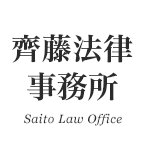Best Licensing Lawyers in Tokyo
Share your needs with us, get contacted by law firms.
Free. Takes 2 min.
List of the best lawyers in Tokyo, Japan
About Licensing Law in Tokyo, Japan
Licensing law in Tokyo, Japan is a complex area of legal practice that involves the granting of permissions by a regulatory authority to an individual or entity, allowing them to carry out certain activities which would be illegal to perform otherwise. This includes licenses for businesses, real estate, pharmaceuticals, food and beverage services, intellectual property, and many more sectors. The Japanese legal system is based on the Civil Law model, and Tokyo, as the capital, is home to various governmental institutions and agencies that regulate licensing.
Why You May Need a Lawyer
Legal assistance in licensing is often necessary due to the intricate and multifaceted nature of the laws regulating various industries. You may require a lawyer if you are setting up a new business, importing or exporting goods, opening a venue that serves alcohol, seeking to patent an invention, or ensuring compliance with local zoning and building codes. Lawyers can help navigate the often complex application processes, represent clients in the case of disputes, and advise on how to maintain licensing agreements in good standing.
Local Laws Overview
Several local laws play a crucial role in the field of licensing in Tokyo. The Commercial Code of Japan governs the establishment and operation of businesses, while specific industry-related laws, such as the Liquor Tax Law and the Pharmaceuticals and Medical Devices Law, regulate licensing for those sectors. Additionally, the Japan Patent Office (JPO) is responsible for intellectual property rights. Environmental regulations, health and safety laws, and municipal codes must also be taken into consideration. Compliance with all pertinent local laws is essential for obtaining and retaining various licenses.
Frequently Asked Questions
What licenses do I need to start a restaurant in Tokyo?
To start a restaurant in Tokyo, you typically need a business license, food service license, and liquor license if you intend to serve alcohol. It's essential to comply with the health and safety standards as per the Food Sanitation Law.
How do I obtain a business license in Tokyo?
You must register your business with the Legal Affairs Bureau and comply with the requirements of the Commercial Code of Japan. The specifics depend on your business type and size.
Can foreign entrepreneurs obtain licensing in Tokyo?
Yes, foreign entrepreneurs can obtain licensing in Tokyo, but they might need to satisfy additional criteria, such as having a resident status that permits business activities.
What are the typical costs associated with obtaining a license?
The costs vary widely depending on the type of license. It includes government fees and may also include legal fees if professional assistance is sought.
How long does the licensing process take?
The period can vary greatly. Some licenses may be issued within a few weeks, while others, especially those requiring thorough inspections and approval, may take several months.
What happens if I operate without the necessary license?
Operating without the necessary license can lead to penalties such as fines or even criminal charges, depending on the violation's severity.
Do I need a separate license for e-commerce activities?
Depending on what you're selling, you may need additional permits for certain products, and you must ensure that you comply with electronic commerce regulations.
Is it possible to transfer a business license in Tokyo?
Business licenses generally cannot be transferred. A new owner must apply for their own license, but some exceptions can exist for specific licenses.
Can licensing requirements change after I have obtained my license?
Yes, licensing requirements can change due to amendments in legislation or policy changes by licensing authorities. You must stay informed and compliant with any changes.
Who governs the issuance of intellectual property licenses in Japan?
The Japan Patent Office (JPO) handles intellectual property rights, including patents, trademarks, and copyright licenses.
Additional Resources
Individuals seeking legal advice in licensing can consult resources like the Tokyo Metropolitan Government, Japan External Trade Organization (JETRO), and the Japan Patent Office (JPO) for specific guidelines and assistance. Professional organizations, such as the Japan Federation of Bar Associations and local Tokyo law associations, can provide referrals to lawyers specializing in licensing law.
Next Steps
If you need legal assistance in licensing, the next step is to contact a qualified lawyer who specializes in administrative and licensing law in Tokyo. You can find such professionals through referrals, bar associations, or legal directories. Before your first meeting, gather all the relevant documents and information about your business or project to facilitate a clearer understanding of your needs. Remember, obtaining legal advice early can save time and prevent legal challenges down the road.
Lawzana helps you find the best lawyers and law firms in Tokyo through a curated and pre-screened list of qualified legal professionals. Our platform offers rankings and detailed profiles of attorneys and law firms, allowing you to compare based on practice areas, including Licensing, experience, and client feedback.
Each profile includes a description of the firm's areas of practice, client reviews, team members and partners, year of establishment, spoken languages, office locations, contact information, social media presence, and any published articles or resources. Most firms on our platform speak English and are experienced in both local and international legal matters.
Get a quote from top-rated law firms in Tokyo, Japan — quickly, securely, and without unnecessary hassle.
Disclaimer:
The information provided on this page is for general informational purposes only and does not constitute legal advice. While we strive to ensure the accuracy and relevance of the content, legal information may change over time, and interpretations of the law can vary. You should always consult with a qualified legal professional for advice specific to your situation.
We disclaim all liability for actions taken or not taken based on the content of this page. If you believe any information is incorrect or outdated, please contact us, and we will review and update it where appropriate.














